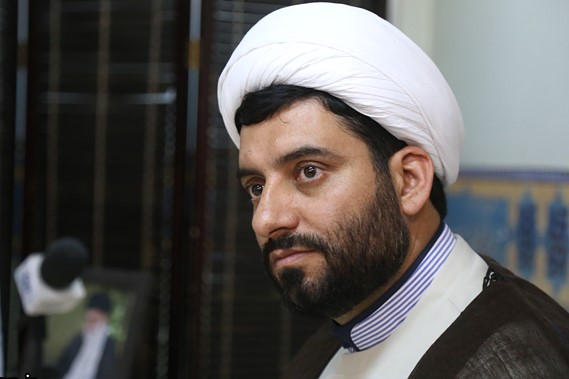
RNA – In an exclusive interview with the Rasa News Agency, Hujjat al-Islam Ahad Azadikhah, the spokesman for Iran’s Cultural Commission, spoke in regard to the Financial Action Task Force on Money Laundering (FATF) and said, “With the studies and efforts that have been done, the result was that acceptance of the contract wouldn’t have any benefits for the country.”
The representative of the people of Malayer in the Islamic Consultative Assembly added, “The principle of the United Nations Convention Against Transnational Organized Crime (UNTOC) is that it has a good outward appearance, such as fighting crime, recognising criminals, terrorists and money laundering, while behind the scenes of this agreement, there is nothing else.”
He continued, “If, for example, we were to earn something by accepting the FATF, this should have occurred through the Joint Comprehensive Plan of Action (JCPOA), not because of the government’s efforts and the diplomacy of the diplomats. The United States has withdrawn from the JCPOA very easily and the JCPOA has remain unfulfilled. Therefore, the spent time to accept the FATF would be futile and fruitless.”
Saying that Iran’s banks will never be free from the American sanctions despite the acceptance the FATF, Hujjat al-Islam Azadikhah said, “Also, with the acceptance of this agreement, major European companies won’t travel to our country to invest in Iran and international banks won’t be able to provide their services to the Islamic Republic. Certainly, if there were any positive developments with this agreement, we could accept some of the materials in the convention, but this is not possible.”
His Eminence said, “On the other hand, the FATF has disadvantages for us. The most significant disadvantage is that, by signing the bills of this convention, we are actually committing ourselves to an international commitment and this agreement will certainly limit us. Moreover, in the field of combating the financing of terrorism, Iran has been more successful than any other country because Iran believes that nations must not spend their money and their future and their future on terrorism.”
Stating that the definition of terrorism in the international arena is different, he said, “Today, perceptions and readings are different from terrorism. If we join the convention, the case exists where personalities such as Major General Qasem Soleymani and the Islamic Revolutionary Guard Corps (IRGC) are introduced as terrorists and this will be great act of treachery to the country and an act of treachery to the IRGC, which provides national and international security in the region. The signing of this agreement is a kind of self-imposed sanctioning and we are 100% opposed to it.”
Hujjat al-Islam Azadikhah said, “Although many countries have joined the convention, my question to those countries is whether they who have joined the so-called UNTOC, are they no longer committing crimes? Today, isn’t the United States guilty of criminal offenses, isn’t Saudi Arabia guilty of criminal offenses in Yemen and isn’t Israel guilty of criminal offenses in Palestine? If this convention is supposed to prevent these crimes, then who are the perpetrators of all these acts of infanticide in Palestine, Yemen, Iraq, Afghanistan and Syria? All of these actions are meant to occupy people with certain issues to separate us from the Islamic Revolution.”
In response to the question of why the government insists on ratifying the FATF, he said there are two hypotheses, “First, the government’s body, due to its optimism, is far more likely to seek approval of the treaty. In their illogical way, the approval of the FATF will calm the hearts of the Americans and will open up of the economy. Although, this is an optimistic state of this issue.”
Hujjat al-Islam Azadikhah added, “But the pessimistic state of this is that it is possible that a few people who are responsible for their mission to force the country to accept the hegemonic and exploitative FATF in order to endanger the country’s future, independence and to prevent the export of the Islamic Revolution. This can be one of the organized veins of infiltration that we must confront.”
Established in 1989, the FATF is an inter-governmental body with the purpose of setting standards and promoting effective implementation of legal, regulatory and operational measures for combating money laundering, terrorist financing and other related threats to the integrity of the international financial system.
Rasa News Agency
12/970